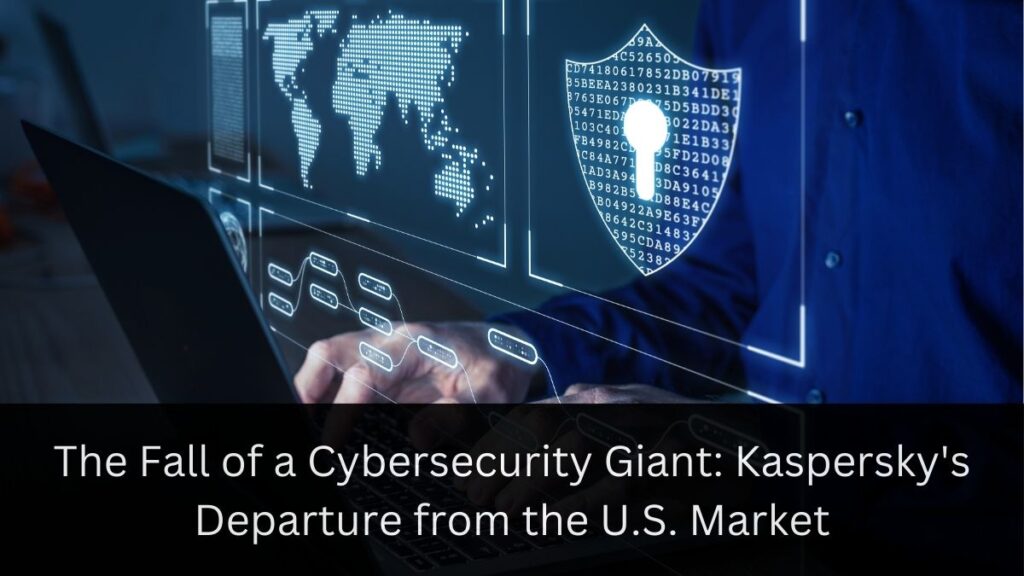In the fast-paced world of cybersecurity, companies rise and fall with alarming regularity. Yet, few stories have been as dramatic or far-reaching as the recent announcement of Kaspersky Lab’s exit from the U.S. market. This Russian cybersecurity firm, once a household name in antivirus protection, is now facing an unprecedented challenge that threatens to redefine its global position.
The Shocking Announcement
On a quiet summer day, Kaspersky Lab dropped a bombshell. The company informed its U.S.-based employees that they were being laid off, effectively shuttering its operations in the country. This sudden move sent shockwaves through the tech industry, leaving many to wonder: what could have prompted such a drastic decision?
The answer, it turns out, lies in a recent ruling by the U.S. Commerce Department. In a bold move, the department announced a ban on the sale of Kaspersky software in the United States, set to take effect on July 20th. This decision effectively pulled the rug out from under Kaspersky’s feet, forcing the company to “gradually wind down” its U.S. operations.
A Long-Standing Relationship Comes to an End
Kaspersky’s journey in the U.S. market began in 2005. For nearly two decades, the company’s software has been a staple in American homes and businesses, protecting countless devices from cyber threats. It’s a sobering thought to realize that this long-standing relationship is coming to such an abrupt end.
As someone who has used Kaspersky products in the past, I can’t help but feel a twinge of nostalgia. I remember installing their antivirus software on my first laptop, marveling at its sleek interface and robust protection. Now, that same software is being labeled a potential security risk by the U.S. government.
The Reasons Behind the Ban
The Commerce Department’s decision wasn’t made lightly. Officials cited national security concerns, suggesting that Kaspersky or the Russian government could potentially use the software for espionage or system sabotage. It’s a chilling thought, reminiscent of Cold War-era tensions.
However, it’s worth noting that the government has yet to provide concrete evidence of any wrongdoing on Kaspersky’s part. The company has vehemently denied these allegations, arguing that the decision was based more on the current “geopolitical climate and theoretical concerns” than on any actual misconduct.
A History of Suspicion
This isn’t the first time Kaspersky has faced scrutiny from U.S. authorities. In 2017, the Department of Homeland Security banned the use of Kaspersky software on federal systems. A year later, the military followed suit. These earlier bans, however, were limited to government systems. The new Commerce Department ruling extends this prohibition to the commercial sector, effectively ending Kaspersky’s business in the U.S.
The Impact on Users
For the millions of Americans currently using Kaspersky products, this news raises some pressing questions. While the government has assured users that they won’t face legal penalties for continuing to use the software, they’ve strongly encouraged a swift transition to alternative solutions.
The ban on updates, set to begin on September 29th, poses a significant security risk. Without regular updates, Kaspersky’s antivirus software will become increasingly ineffective against new threats. It’s a stark reminder of the critical role that ongoing support plays in cybersecurity.
A Broader Perspective
Kaspersky’s exit from the U.S. market is more than just a business story. It’s a reflection of the complex interplay between technology, national security, and international relations. In an increasingly interconnected world, the lines between these domains are becoming increasingly blurred.
This situation raises some thought-provoking questions. How do we balance the need for robust cybersecurity with concerns about foreign influence? Can we truly trust any software in an age of global tensions and cyber warfare? These are questions that will likely dominate discussions in tech circles and policy rooms for years to come.
Looking to the Future
As Kaspersky prepares to close its U.S. operations, the cybersecurity landscape in America is set for a significant shift. Other antivirus providers will undoubtedly scramble to fill the void left by Kaspersky’s departure. For consumers and businesses alike, this transition period will be crucial.
It’s worth remembering that cybersecurity is an ever-evolving field. Today’s top-rated antivirus could be tomorrow’s security risk. As users, we must remain vigilant, staying informed about potential threats and adapting our digital habits accordingly.
In light of these developments, it’s crucial for all of us to take a moment to reassess our cybersecurity measures. If you’re currently using Kaspersky products, now is the time to research alternative solutions. Remember, an outdated antivirus is often worse than no antivirus at all.
Moreover, this situation serves as a reminder of the importance of digital literacy. Understanding the software we use, the companies behind them, and the potential risks involved is no longer optional – it’s a necessity in our interconnected world.
As we bid farewell to Kaspersky in the U.S. market, let’s use this moment as an opportunity to strengthen our digital defenses and become more informed consumers of technology. After all, in the realm of cybersecurity, knowledge truly is power.

